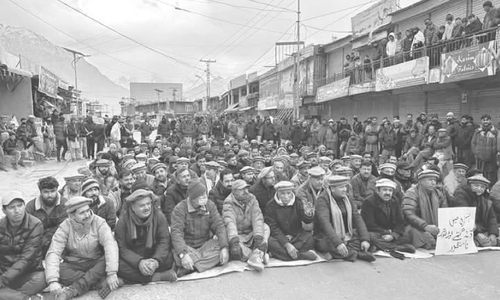ANKARA, April 30: Turkey’s parliament on Wednesday voted a long-awaited amendment to a law penalising “insults to Turkishness” after strong EU criticism, but rights activists insisted free speech remains under threat.
The amendment, softening the infamous Article 301 of the penal code, was adopted with the support of 250 MPs in the 550-member house after an eight-hour debate that went on through the night amid fierce opposition from nationalist deputies.
Under the amendment, “Turkishness” — a term criticised as too broad and vague — was replaced with the “Turkish nation” and the envisaged jail term lessened from three to two years. The sentence can be suspended automatically or converted to a fine.
In a bid to make the conditions for trials more difficult, the provision now requires the justice minister’s approval before prosecutors can launch cases.
A clause calling for increased sanctions if the offence is committed abroad was removed from the law.
Article 301 has mainly targeted people contesting the official line on the World War I massacres of Armenians under the Ottoman Empire. Many countries have recognised the killings as genocide.
Dozens of intellectuals, including 2006 Nobel literature laureate Orhan Pamuk and slain ethnic Armenian journalist Hrant Dink, have been tried under the article.
Some were convicted, but their sentences were suspended and no one has been jailed so far, but activists say the existence of the article itself is a way of suppressing freedom of expression.
Article 301 achieved particular notoriety when Dink, who argued that the Armenian massacres constituted genocide, was prosecuted three times, receiving a six-month suspended sentence in 2006. He was shot dead in January 2007 by an ultra-nationalist gunman.
The European Union, which Turkey is seeking to join, has long criticised the law as a threat to freedom of speech.
European Commission chief Jose Manuel Barroso said during a visit to Ankara this month that the amendment plan was “a step in the right direction.” But the article’s many critics argue that the revision is inadequate and the provision should be scrapped altogether.
Parliament’s decision to simply amend the article “is a huge disappointment,” said Emma Sinclair-Webb, a researcher on Turkey at Human Rights Watch.
“It shows that free speech is a highly problematic issue in Turkey and that the government has not yet grasped the substance of the problem,” she said.
Turkish activists, backed by prominent writers, journalists and academics, have launched a campaign for the abolition of Article 301 and plan to present a petition to parliament in June.
Critics say other laws pose an equal threat to free speech, pointing at provisions penalising remarks deemed to be “terrorist propaganda,” or denigrating the legacy of Turkey’s founder Ataturk, alientating people from military service and inciting hatred among the population.
The EU has repeatedly warned Turkey that respect for free speech will be a test of its commitment to align with the bloc’s democratic norms.
Turkey has so far opened accession talks in only six of the 35 policy areas candidates are required to complete amid a trade row over Cyprus and strong opposition to its membership in some EU countries.—AFP













































Dear visitor, the comments section is undergoing an overhaul and will return soon.